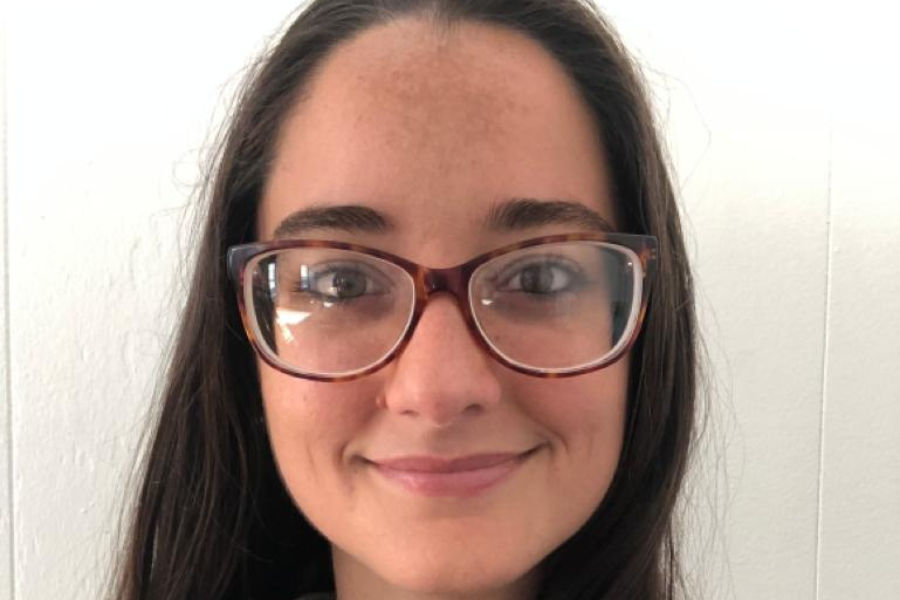Virginia Machado

"Personal and Professional Growth, Building Networks"
College: Arts and Sciences
Degree Program: Spanish Literature and Linguistics
Degree: Master's
Why FSU?
I originally applied to FSU to pursue a PhD in the Department of Mathematics, under the recommendation of one of my undergraduate math professors. While I was in my first year of that program, I met friends in the Spanish Literature and Linguistics Program and was very interested to pursue this master's degree, because I could do both literature and linguistics. However, the Department of Mathematics would not allow me to take classes outside of the department. So, when things didn't work out with the Department of Mathematics, I applied to the Spanish Literature and Linguistics master's program, and it has been a wonderful change finding a program where the staff is supportive and wants you to succeed, and colleagues and classmates talk to each other and work together to build a sense of community within the department.
Motivation to pursue a graduate degree
For as long as I can remember, I've always loved learning. In undergrad, I ended up with two majors and two minors simply because I loved learning and taking so many different courses in varied fields. Figuring out which route to take toward a graduate degree was difficult, because, while I knew I wanted to return to a classroom setting as a student (I had been a teacher for three years between graduating from undergrad and coming to FSU for graduate studies), I did not know how to narrow my interests to fit the narrow focus of graduate studies. I was deciding between law school and a PhD in mathematics. I decided to pursue first the math degree because I believe I ultimately want to be a professor. I enjoy teaching and helping others understand concepts that they may be struggling with or interested in but don't know anything about, or helping them find interest in topics they believed were uninteresting or irrelevant (which happens often in math). In order to keep teaching, I also have to keep learning.
Importance and/or impact of research and work
I haven't really done in-depth research yet, just some research for class papers, assignments, and presentations. So I'll focus more on the work aspect of being a teacher/professor. Obviously, when you take a class, the general expectation is that the teacher is there to teach the students in the class information about the class topic. But teaching is so much more than that. This is one of the reasons that I prefer the term facilitator over teacher, because no one can teach someone who doesn't want to learn, just like no one can stop someone from learning something they want to learn. Our roles as teachers/professors/facilitators is to guide students through the topics covered in that class, but we are also impacting other very important aspects of our students lives. Through our behaviors, our expectations, our classroom rules, student responsibilities, our flexibility with our students and with ourselves, we show our students important aspects of life. Is it okay to be flexible? If so, when? Do we prioritize productivity over human(e) well-being? Do we prioritize "right" answers, or the learning/growing process? How do we handle change? These and others similar questions, I think, are important to ask ourselves when we have the responsibility to guide others, especially in an increasingly rapidly changing world that can sometimes forget to remain human and connected to the planet we inhabit.
Career aspirations
As mentioned in a previous question, I aspire to be a professor. I love interacting with students interested in learning and guiding them through that process. I would also like to do research in several areas of high interest to me.
Advice for anyone considering graduate school
Don't be afraid to start somewhere, anywhere you think you'll like, and move to somewhere else if you aren't happy. I think we often feel, when we're making a big decision like this, that it's all or nothing. It doesn't have to be. Be somewhere where you feel like what you're doing is hard work, but you're interested in what you're learning and what you'll be able to do with that knowledge down the road. Also, time management is huge, but so is finding balance between work and play. A negative aspect of higher education is that, depending on the community of your department, there could be a stigma that you should be working non stop all the time and should feel guilty for taking time off to do something other than your studies. That expectation is so damaging and so unrealistic to maintain, and you need to know that it is okay and necessary to take a break and walk away from your studies in order to refresh your mind and come back renewed. And how often you do that is your business, because you're the only one who can listen to your body and know when it's time to work and when it's time to take a break.
